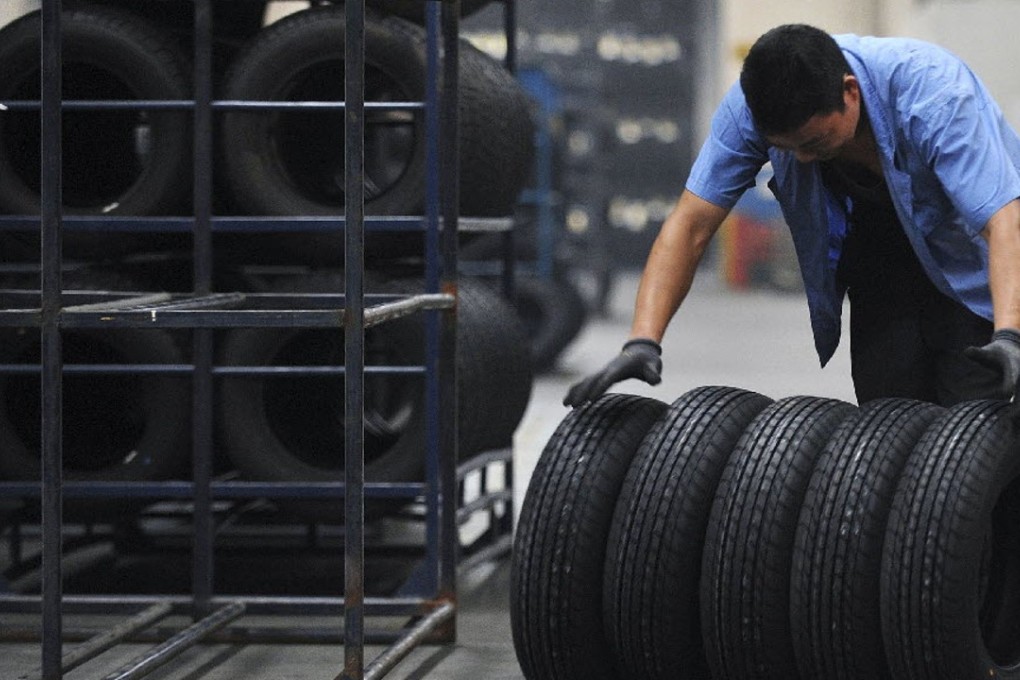Beijing accuses US, EU of dumping rubber on China as trade dispute shows no signs of tiring
Importers hit with duty deposits of up to 66 per cent, a day after US takes similar punitive action against Chinese aluminium

China has announced new tariffs on rubber imported from the United States, European Union and Singapore after an investigation found it was being sold at unfairly low prices.
While the move was not directly targeted at Washington, it came just a day after a US inquiry accused China of selling heavily subsidised aluminium sheet on the American market.
China’s Ministry of Commerce said in a statement on Thursday that foreign suppliers had been “dumping” chlorobutyl rubber, which is used to make tyres, on China at the expense of local companies.
In an initial ruling, importers representing companies like ExxonMobil and Arlanxeo were told to pay import duty deposits ranging from 26 per cent to 66.5 per cent to China customs.
The statement said the anti-dumping investigation was initiated in August, but the ruling came as China and the US remain locked in a tit-for-tat trade fight, and just two days after Beijing imposed preliminary anti-dumping tariffs of 179 per cent on US sorghum.